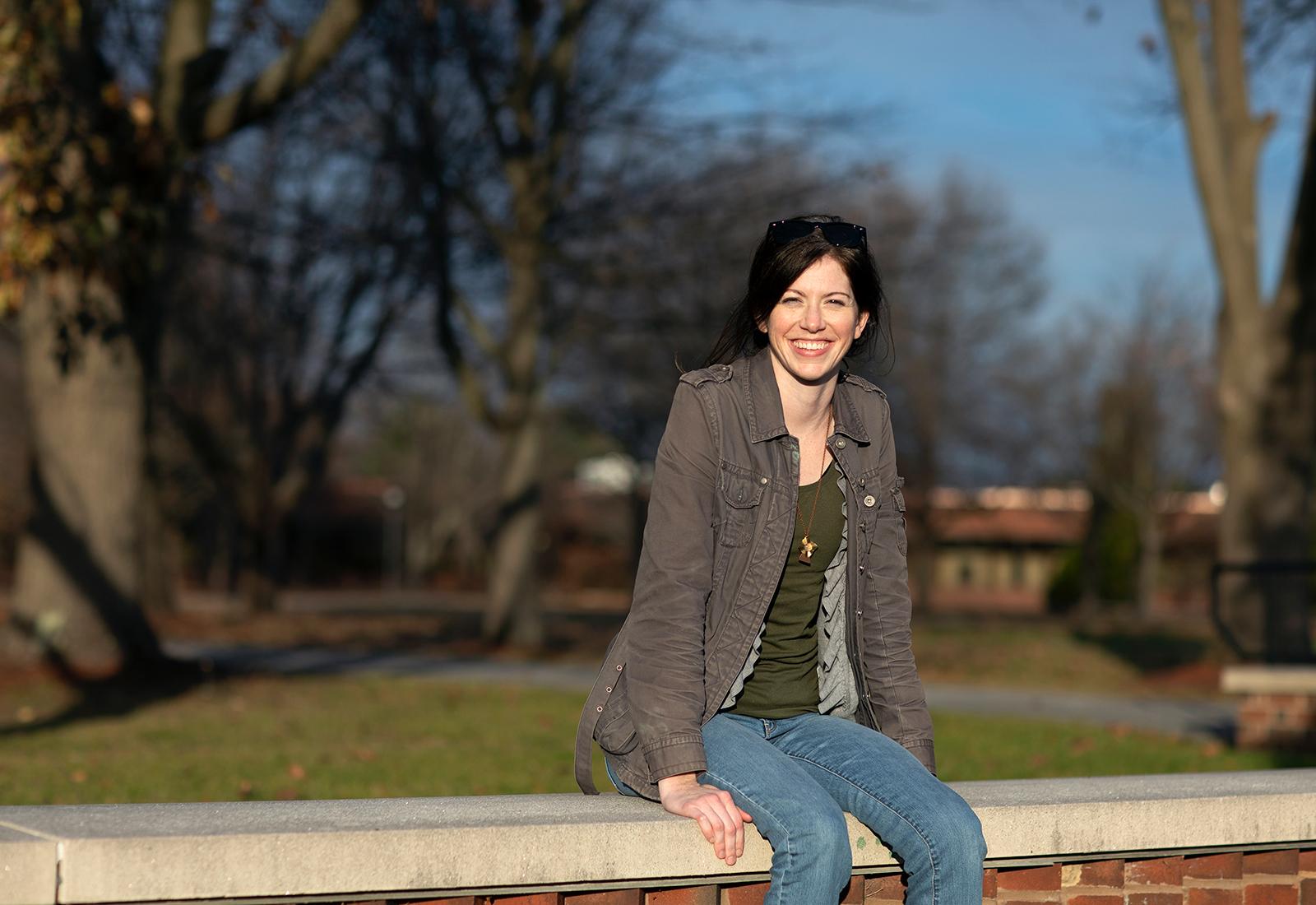Dr. Kathryn Grow Allen Engages with SUNY Potsdam Students & Public in Greenland Visit, Thanks to Grant from U.S. Embassy in Nuuk

Visiting Professor of Anthropology Dr. Kathryn Grow Allen is documenting her research and travels in Greenland for the benefit of her SUNY Potsdam students, thanks to a grant from the U.S. Embassy in Nuuk.
Every day, SUNY Potsdam faculty member Dr. Kathryn Grow Allen wakes up and documents a different aspect of her trip to Greenland to share with her undergraduates (and with anyone else who cares to follow along).
Thanks to a grant from the U.S. Embassy in Nuuk, the visiting professor is currently leading a virtual field trip to further her research and benefit her students—as she leads digital heritage workshops, interviews local artists, learns about the impact of climate change firsthand, and captures the beauty of early Arctic sunsets and the Northern lights that follow.
Allen is a SUNY PRODiG Fellow and a visiting professor in SUNY Potsdam’s Department of Anthropology. She is also part of an international team of researchers who are working to develop a digital cultural heritage initiative in Greenland, joined on her journey with research partners from the Greenland National Museum and the University of Dundee's 3DVis Lab.
Over the past several weeks, Allen has been tracking her preparations for the journey and documenting her travel on a blog, with help from her student content manager, Charlie Sarkioglu ’22. Students in her Applied Anthropology class are following along daily and completing coursework inspired by the trip.
“I will be the first to admit a virtual international experience is not the same as planting your feet on the soil of a new country,” Allen said. “These experiences do more than give us great stories to tell, they broaden our mind to the world. They expand capacity to collaborate with those different from us and they increase awareness of global concerns. However, while virtual international experiences are not a replacement for in-person ones, they are an excellent replacement for no international experience at all.”
The group’s itinerary started with a quick stop in Reykjavik, Iceland, before flying first to Nuuk and then Sisimiut for Greenland Science Week (which started in one city and then moves to the other). Along the way, they took a boat through the fjords to visit the remote community of Sarfannguit in the new Aapasait-Nipisat UNESCO World Heritage Site, known as the Inuit hunting ground between ice and sea. Allen is sharing interviews with everyday residents of Greenland and some of the 3D scans that she and the team are making of artifacts and heritage items to showcase the country’s unique culture and history.
At the same time, Greenland is also making headlines for shipping a large iceberg that broke off its glaciers to the 2021 United Nations Climate Change Conference in Glasgow, Scotland. The iceberg has been melting outside the COP26 proceedings for the past week, as a daily reminder of the effects of the rapidly warming world. As she traveled the country, Allen has reflected in her posts on the current and future impacts of climate change and on the future of the cultures and communities she has come into contact with.
“The work to balance a more open Greenland with the desire to protect and preserve what is so special about this island nation seems to be on everyone's mind,” she said.
“A continued rise in global temperatures will impact the northern world in profound ways. Flying over the perfect landscape of uninhabited earth between cities made me wonder what this same route will look like if I return in twenty years. In fifty years? How much of the snow and ice that creates this frozen landscape will be gone? And what will be the ripple effects on the animals, land, plants, and people of Greenland? These themes, tourism and climate change, seem to come up a lot in my thoughts and conversations.”
Allen’s trip was made possible thanks to a grant from the U.S. Embassy in Nuuk, along with support from a Lougheed Center for Applied Learning grant.
To follow along with her journey, visit http://www.kathryngrowallen.com/virtual-field-trip.
The mission of SUNY Potsdam’s Department of Anthropology is to provide students with knowledge of the five fields of anthropology and to give them practical experience in communities so that they can approach the world professionally and anthropologically. The College’s archaeological studies program offers students a chance to gain hands-on field experience working alongside experienced faculty as undergraduates. Past field school projects have included work in the North Country and the Adirondacks, and as far away as South Africa. To learn more, visit https://www.potsdam.edu/academics/AAS/Anthro.
About SUNY Potsdam:
Founded in 1816, The State University of New York at Potsdam is one of America’s first 50 colleges—and the oldest institution within SUNY. Now in its third century, SUNY Potsdam is distinguished by a legacy of pioneering programs and educational excellence. The College currently enrolls approximately 3,000 undergraduate and graduate students. Home to the world-renowned Crane School of Music, SUNY Potsdam is known for its challenging liberal arts and sciences core, distinction in teacher training and culture of creativity. To learn more, visit www.potsdam.edu.
